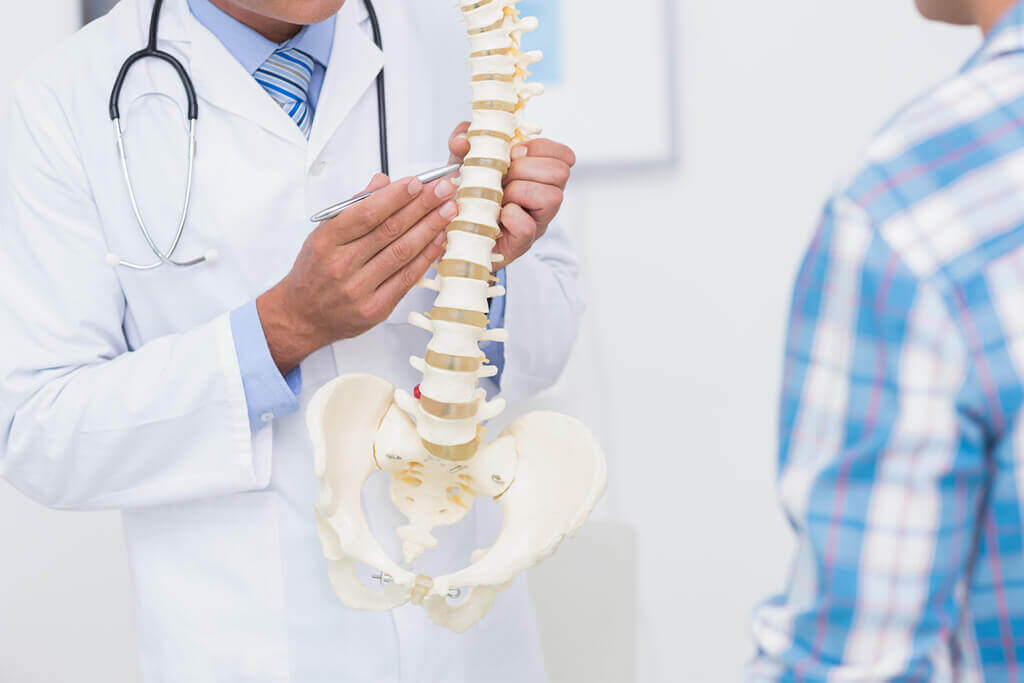Peripheral Neuropathy
Introduction
Anatomy
Peripheral neuropathy typically begins in the ends of the longest nerves, such as the sensory nerves in the toes and feet. However, peripheral neuropathy can affect other nervous systems, and the symptoms will depend on what functions the nerves control. For example, if the autonomic nervous system is involved, bowel and bladder problems may be present.
Causes
Symptoms
If peripheral neuropathy progresses to the autonomic nerves that control organs, it can change bowel and bladder functions. It may also affect breathing, swallowing, digestion, and vision. It can cause impotence in men. Fainting or dizziness can occur if blood pressure is affected.
Diagnosis
Your examination will include a clinical neurological exam, which includes reflex and sensation testing. Electromyography (EMG) and nerve conduction studies may be used to assess the speed and strength of nerve signals to certain muscles. A nerve biopsy may be used to identify abnormalities. In some cases, imaging scans may be used to help determine if there is pressure on a nerve.
Treatment
Several types of medications or combinations of medications may be recommended. Over-the-counter or prescription pain relievers, anti-seizure medications, antidepressants, and local anesthetic patches may be prescribed.
Physical and occupational therapy may help improve muscle strength, coordination, and range of motion. Your therapists may recommend braces or splints to position your joints. Ambulation devices, such as a walker, cane, or crutches can increase mobility. Your therapists may use transcutaneous electrical nerve stimulation (TENS) to deliver a small electrical current to nerves to relieve pain. A home evaluation performed by your therapists can ensure that your living space is as safe as possible.
Lifestyle changes can help peripheral neuropathy. Examine your feet regularly and report any changes to your doctor. He can recommend the best types of shoes for you. Exercise regularly, quit smoking, avoid alcohol, and eat healthy balanced meals. Your doctor can make specific recommendations for you.
Prevention
You may prevent complications from peripheral neuropathy by managing its underlying cause. Follow your doctor’s advice and attend all of your appointments. Bring any new changes to your doctor’s attention promptly.
Am I at Risk
Risk factors for peripheral neuropathy:
• Trauma
• Pressure from nerve compression
• Alcoholism
• Diseases, such as diabetes, cancer, thyroid disease, or kidney failure
• Infections, such as HIV/AIDS, rheumatoid arthritis, or hepatitis
• Vitamin B deficiency
• Chemotherapy
• Exposure to toxins or poisons
Complications
Decreased sensation and coordination in the feet or toes increases the risk of falls. Your therapists can work with you on a fall prevention program.

Copyright © - iHealthSpot Interactive - www.iHealthSpot.com
This information is intended for educational and informational purposes only. It should not be used in place of an individual consultation or examination or replace the advice of your health care professional and should not be relied upon to determine diagnosis or course of treatment.
The iHealthSpot patient education library was written collaboratively by the iHealthSpot editorial team which includes Senior Medical Authors Dr. Mary Car-Blanchard, OTD/OTR/L and Valerie K. Clark, and the following editorial advisors: Steve Meadows, MD, Ernie F. Soto, DDS, Ronald J. Glatzer, MD, Jonathan Rosenberg, MD, Christopher M. Nolte, MD, David Applebaum, MD, Jonathan M. Tarrash, MD, and Paula Soto, RN/BSN. This content complies with the HONcode standard for trustworthy health information. The library commenced development on September 1, 2005 with the latest update/addition on February 16, 2022. For information on iHealthSpot’s other services including medical website design, visit www.iHealthSpot.com.


